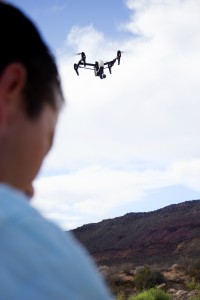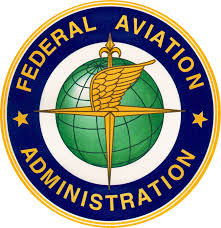Drone operations, doing it legally.
Drone Use in Real Estate
Have you considered using a drone to take pictures of your home, property, or listing? Do you know other agents that are already using drones to enhance their listings? Have you recently read in the news how the Federal Aviation Administration (FAA) is cracking down on illegal drone use and starting to fine illegal operators? Have you wondered what it takes to operate drones legally for your business? This article will answer your questions and provide valuable information on how to legally and safely use drones to enhance your home, property, and listings.
Drone Authorization
The FAA categorizes the use of Unmanned Aerial Systems (UAS) or drones into two categories, hobby and non-hobby use . Hobby users are model aircraft enthusiasts that fly drones for the fun of flying. Many times you will see them flying at the park, in their back yard or at a model aircraft club.
These hobby aircraft come in all shapes and sizes from small indoor helicopters purchased at a mall kiosk, to GPS enabled quad-copters with attached GoPro cameras, to 150 lbs miniature airplanes with micro-jet engines. Hobbyist may even post their personal videos to Facebook or YouTube, sharing their drone experiences with family and friends.
In order to regulate hobby drones the FAA recently passed regulation requiring all hobby drones used outdoors and weighing over 0.55 lbs be registered with the FAA. Registration is a simple process that can be completed online at https://www.faa.gov/uas/registration/ and costs $5 to register a hobby aircraft. Once a hobby flyer has registered their aircraft they are legal to fly as a hobbyist within the guidance stated within their newly acquired registration. This registration however does not allow for commercial use as stated in the registration, “for all operations other than as a model aircraft…additional safety authority from FAA and economic authority from DOT may be required” (FAA Small UAS Certificate of Registration). Failure to register a hobby drone or operating outside the regulations established by the FAA for hobby use carries a $27,500 fine per flight. In order to operate a drone commercially or as a business tool additional licensing and registrations are required.
Legal Drone Use
In order to operate a commercially or as a business tool, the process starts with the drone operator receiving special permission from the FAA in a Section 333 Exemption (see an example of a Section 333 exemption here: http://airvidtech.com/AirVidTech-FAA-Section-333-Exemption.pdf).
On February 14th, 2012 Congress passed the H.R.658 – FAA Modernization and Reform Act of 2012, defining drone operations and regulations. Section 333 of H.R. 658 authorizes the FAA to issue authority and permission on a case by case basis to commercial drone operators that meet specific restrictions and guidance set by the FAA. Commercial drone operators that operate illegally and do not follow regulations are liable for a $25,000 fine for every illegal flight . This includes simply using a drone personally to take a few pictures of your listing even though you did not “hire” someone to do the work. If a drone is used as part of a business, to further a business, or internally as a business tool that operation is considered a non-hobby drone activity and is governed by FAA regulation and H.R. 658.
 To operate a drone legally for non-hobby or commercial use, the following is required:
To operate a drone legally for non-hobby or commercial use, the following is required:
* Exemption to Section 333 of the FAA Modernization and Reform Act of 2012
* COA issued by the Air Traffic Organization
* Minimum “Sport” Pilot License issued by the FAA
* Registered UAS system with assigned N-Number
* Flight NOTAM issued for each flight operation
* Visual observer utilized for every flight
Any flight that does not meet all of these requirements and does not have these documents on hand at the flight location is operating outside FAA regulation and is liable to be fined.
If you desire to operate your own drone legally as part of your business, the process starts with visiting www.FAA.gov. You will be required to request a Section 333 Exemption which typically costs around $5,000 in attorney fees to draft your Exemption request followed by a six month wait as your request is processed and discussed on the public docket. There is no guarantee that your request will be approved. After receiving a Section 333 Exemption you must register your drone as a commercial aircraft with the FAA in order to receive an N-Number and begin filing flight NOTAMs with the FAA prior to every flight. You will be required to utilize a visual observer for every flight and report all your flight activities to the FAA on a monthly basis in order to maintain a current registration. Lastly, you must be a pilot with a minimum “Sport Pilot” license issued by the FAA to fly your drone as part of your business. If you do not already have a pilot license you can expect to pay between $8,000 and $15,000 minimum for flight training based on the aircraft you learn to fly.
The other option is to hire a legal, licensed, and insured drone operator. If you hire a drone pilot and want to know if they are legal, simply ask them to produce the documents and records listed in the bullets above. If they cannot they are not legal and you will be liable for hiring them. Additionally, make sure any drone operator you hire is not only operating legally but that they are insured specifically for drone operations and photography. If their aircraft breaks a window or falls on someone’s car or they are sued for invasion of privacy because their photos or video captured the neighbor’s kids playing in the back yard, make sure you are covered.
In conclusion, yes you can operate a drone as part of your business, but in order to do so legally and to avoid being shut down or fined by the FAA, specific regulations and rules relating to UAS use must be followed.

